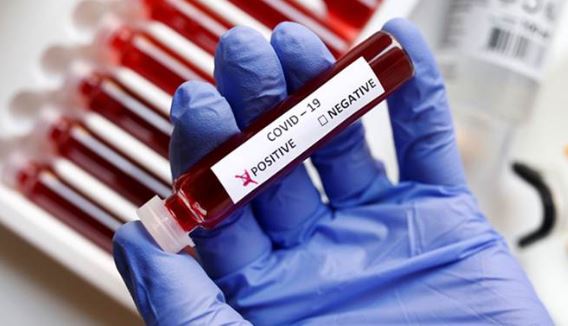How to Fight with Depression During the Coronavirus Outbreak
How to Fight with Depression During the Coronavirus Outbreak
New coronavirus outbreaks have affected many areas of daily life, including mental health. With the sudden disintegration of our routines and the new norm of social disturbances, as we knew it changed dramatically in a matter of weeks.
Suddenly, so many of us are experiencing the stress of the news – and its impact on our finances – alone, putting us at risk for depression during an outbreak of the coronavirus virus.
“This is the perfect storm for depression and anxiety,” Dr. Robert Leahy, a psychologist attending New York-Presbyterian / Weil Cornell Medical Center, is the author of The Worley Cure and about keeping his head after his job, and a national expert in cognitive medicine. With everything going on, people may find themselves feeling rude, helpless and helpless, and eventually, depressed.
The National Institute for Mental Health defines depression as a common but severe mood disorder that affects how you feel, think and handle daily activities such as sleep, eating and working.
Symptoms include persistent depressed, anxious or “empty” moods, irritability and feelings of guilt and pessimism. “We are facing a national trauma, whether it is fear of being infected or infecting someone else, or an economic downturn, and many people are isolated,”
Dr. Leah says. People who are already struggling with depression and anxiety can make the situation increase their emotions. Others who are accustomed to keep busy may suddenly find themselves alone with their thoughts, and miss friends and family outside their home. \
While the need to maintain social distance creates some obstacles, there are specific steps you can take to get to Dr. According to Lehi “do the best you can to make the worst”. Here, he gives ways to protect your mental health and prevent depression during a coronovirus outbreak.
Find the hope:
This may seem impossible during a difficult time, but instead of thinking, “This is the rest of my life,” take it week by day or week by week. Take a step back and see that there is reason to be hopeless. For example, in China’s Wuhan province, where its outbreak began, the reported number of new cases has dropped significantly and dropped to zero in a few days, to reduce measures.
Stores and factories are starting to open again. By looking at solutions that work for those communities and taking serious precautions, we are increasing the possibility that the future is not as bleak or extreme as we fear.
For individuals who feel the financial impact of coronovirus, the silver layer can be particularly difficult during this time. Try to adjust your mindset: If you have lost work, think of it as the time between returning to work, rather than seeing it as a permanent state.
Once the pandemic emergency is over, there will be a demand for pent-ups – everyone will be eager to go out to restaurants and travel, so many of those jobs will happen again.
Keep a schedule
Many people have lost their normal routine, and this unstructured time can also lead to rumor and inactivity, high risk factors for depression. Schedule your day, below the hour. At the end of the day, turn things off and make a to-do list for the next day, so you can wait for things.
Create a set of goals for the week and month, then make some long-term goals. If you have lost your job, it is especially important to have a structure. It is natural for people to be upset when they are unemployed. Apart from financial issues, they lose structure in their lives. One way of copulation is to structure your time.
Be productive with your free time
Instead of thinking of being isolated as being in jail, you might see it as more free time. Try to find moments of happiness in this freedom. Make a list of activities you can engage in. You can still go out to exercise, or go online to find an exercise or yoga video. Read those books and watch the films you are meaningful about. To clean your rooms, reach around the work you do. Get creative about cooking.
You may have been ordering takeout for some time and have forgotten that you have a kitchen. One risk that goes with isolation and inaction is the tendency to permeate and ponder: “Why is this happening? It’s so terrible, I can’t stand it. “You can either ruminate or you can solve problems. Ask yourself: “What’s the problem? I’m bored, I’m in isolation okay, so I can exercise, I can contact people, make plans and work. I can see this as a challenge to identify short term and long term goals. “
Connect with others (even if not face-to-face)
Just because we are not isolating ourselves, it means that we really need to separate ourselves. Make a list of friends you have not been in contact with for a long time, and use your phone as a telephone. Set a regular time each day to contact people, and schedule virtual get-togethers on the online platform to talk or perhaps play games. You can start a book club online with your friends.
If you have a loved one in the hospital or are going through a difficult time, it is easy to feel helpless, especially if you cannot travel or help them feel better. But you can always tell the people you love and care about them. We often underestimate how important it is to express relationships, love and gratitude. And we can do that on an ongoing basis, not when someone is ill.
Reframe your perspective
It is okay to be upset and accept yourself and others, these are difficult times. Yet it can be an opportunity to think about what you want to do with your life or what you really want to do.
If you see this period as a deliberate practice of not going out of restaurants and bars, you may feel that you can succeed without those routines. When the epidemic ends and the emergency is lifted, you can appreciate the freedom to go to the gym or hang out with your friends. Epidemics may increase mortality rates.
A positive way to think about mortality is to identify what is really important to you in life, which can be a meaningful relationship, contribute to the betterment of society, or be creative. Just because we cannot interact with people face to face, it means that we should be isolated and passive. It is normal to feel anxious, but we can process the experience, stay active and connected, maintain as many routines as we can, and build resilience when the crisis season arrives.









